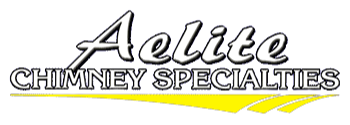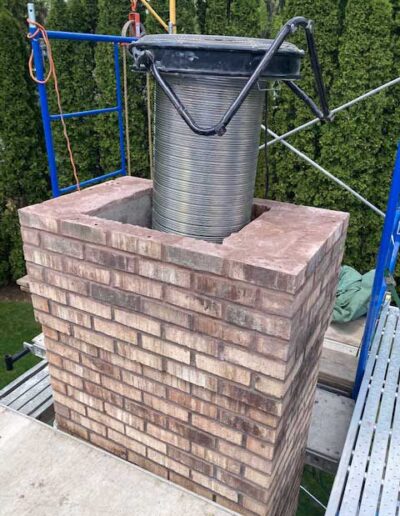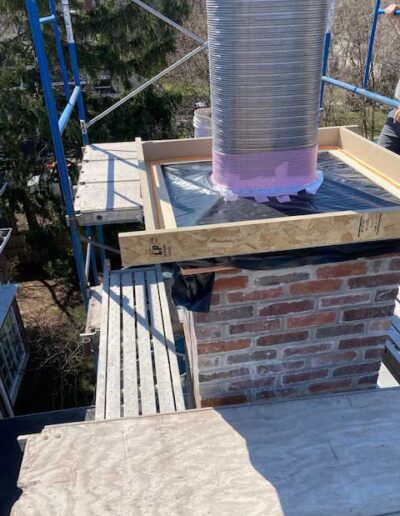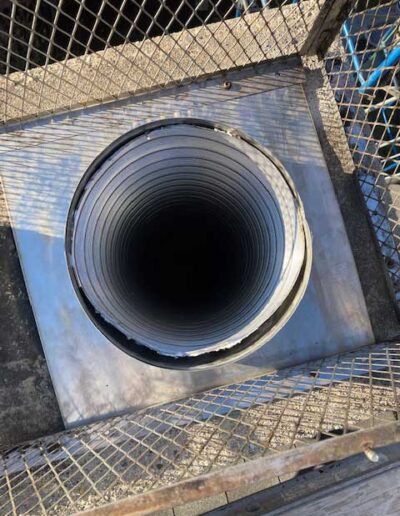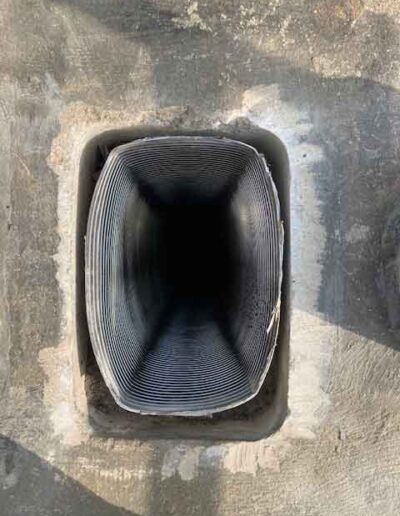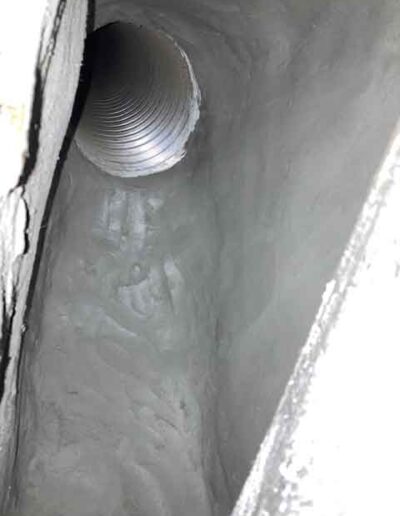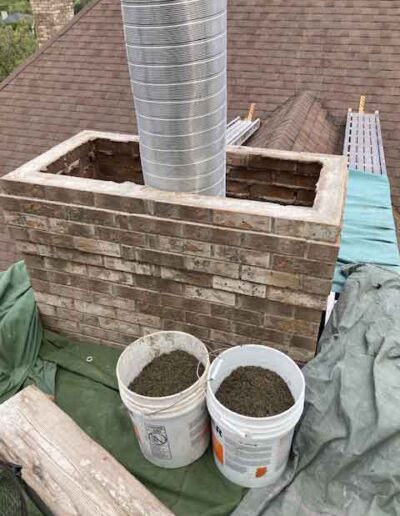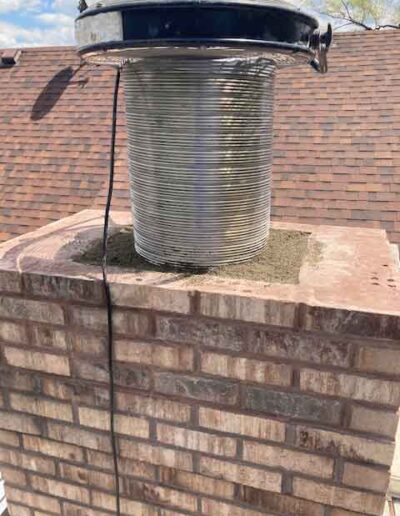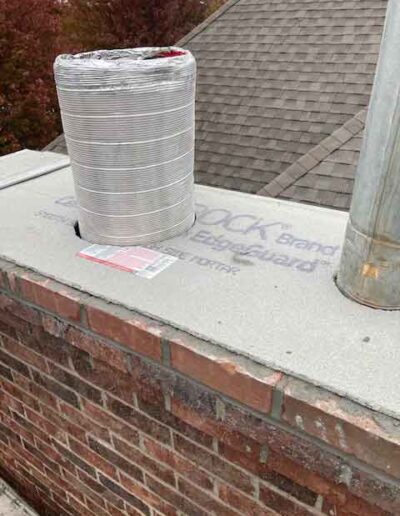Chimney Relining Services for homes in McHenry, Lake, and Cook Counties
One of the most important services we provide for our customers in the Northwest suburbs of Chicago (besides chimney inspections and chimney sweeping), is the relining of chimneys. This includes liners for any and all of the following appliance types: fireplaces, furnaces, hot water heaters, and boilers. Chimney liners are critical, not only because they’re mandated by national and local codes, but because they provide a much-needed extra layer of protection between your home and the smoke, flames and toxic gases that enter your chimney each time you light a fire. Liners also make your chimney more efficient by creating the appropriately-sized flue. Old, unlined chimneys or chimneys with damaged liners can be very dangerous. To make sure your chimney is safe and up to code and to protect your family and property from fire and carbon monoxide poisoning, we recommend that you make an appointment to have your chimney professionally inspected today.
What Kind of Chimney Liner You Need
Which type of chimney liner do you have? Clay Tile or Metal? You’ll most often find chimneys lined with clay tiles, which aren’t very expensive and usually work just fine in most open fireplace chimneys. However, the Chimney Safety Institute of America warns that, “There are two disadvantages to clay tiles. The first is that, being a ceramic product, they cannot rapidly absorb and evenly distribute heat during the rapid temperature rise that occurs during a chimney fire … The second disadvantage is that tiles cannot adequately contain the liquid combustion byproducts produced by modern gas appliances.” Because of these potential problems with clay liners, stainless steel or aluminum chimney liners are usually what homeowners opt for when upgrading or repairing their existing chimneys. Stainless steel liners are used for wood burning, gas, or oil appliances, while the aluminum liners are chosen for some medium-efficiency gas appliances. At Aelite Chimney, we may recommend different types of liners depending on the condition of your chimney and heating appliance, your budget, your fuel type, and the age of your home.
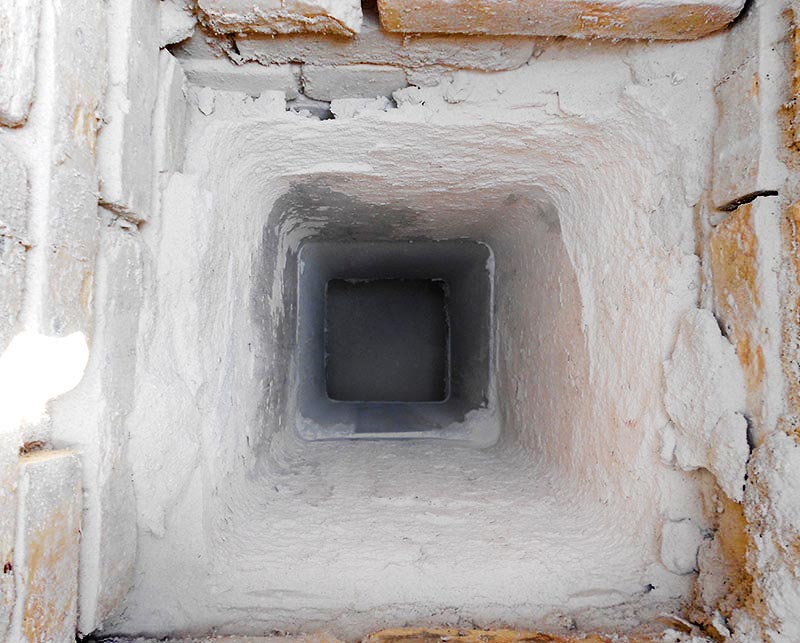
Chimney Relining in Progress
The 3 Biggest Reasons You Need a Chimney Liner
1) To protect your house from catching fire. The National Bureau of Standards conducted tests that found that unlined chimneys allow heat to move through a chimney so quickly that adjacent woodwork was able to catch fire in under four hours time. A chimney liner adds an extra layer of protection.
2) To protect your chimney masonry. Fires create highly corrosive byproducts, including acidic flue gases that can penetrate brick and mortar and diminish the life of your chimney. When your mortar is eroded, it’s easier for dangerous gases like carbon monoxide to leak into your living space.
3) To make your heating appliance more efficient. To get your fireplace, wood stove, gas stove, or gas or oil furnace running at optimum efficiency, it’s crucial to have the correct sized flue. The right liner will give you the right sized flue, and will help your chimney draft properly and avoid excessive creosote buildup and carbon monoxide production.
At Aelite Chimney, we proudly carry Ventinox lining systems, which are made from stainless steel and can withstand high temperatures associated with solid fuel-fired heaters, as well as the corrosive environments typical in gas or oil vents. Tested and listed for all-fuel, these liners can also be used for wood, gas, or oil-fired equipment, and can last you a lifetime.
To find out more or to schedule an inspection of your chimney flue, call Aelite Chimney Specialties at (815) 363-1242 or click here to schedule an appointment online.
Chimney leaks can cause major damage to your chimney and home, so call the team at Aelite Chimney Specialties to help with all your chimney, fireplace or vent services.
